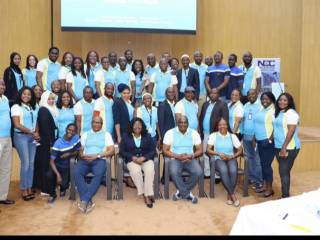The Commission said this was necessary to ensure the provision of qualitative and efficient services throughout the country in line with global best practices.
The Commission equally declared its commitment to regularly undertake cost-based studies in order to ensure fair pricing of data and voice services in a bid to protect Nigerians and consumers in the telecom sector.
Josephine Amuwa, Director, Policy, Competition and Economic Analysis (PCEA) Department, NCC gave the assurances in a remark made at a two-day annual departmental retreat in Abuja.
According to Amuwa, "the Policy Competition and Economic Analysis (PCEA) Department has been directly responsible for approving, regulating, and monitoring of telecoms tariffs, assessing the level of competition in the industry, monitoring behaviour, measuring the performance of the industry as well as providing policy directions on topical issues related to the ecosystem.”
Speaking further, Amuwa reiterated that the PCEA Department can be relied upon for the provision of up-to-date statistical information on voice and data subscriptions, teledensity, as well as level of broadband penetration.
She explained that the determination of Mobile Termination Rate, Determination of Unstructured Supplementary Service Data (USSD) Pricing, and Determination of Mobile Number Portability transaction fees in the sector were among key issues that the PCEA department handled recently.
Amuwa, however, added that study was ongoing on retail broadband and data services toward efficient regulation. “The Department is fortified to provide Nigerians with economic indication on telecommunications contribution to the nation's Gross Domestic Product (GDP),” she added.
Also speaking at the event, Sunday Atu, Head Competition and Tariff, NCC, said evaluations were ongoing to ascertain areas to deepen competition in the telecommunications market and to benchmarking these practices against international best practices.
Chukwuyere Ebere, a telecommunication lawyer who spoke as a guest speaker at the retreat, charged the Commission to maintain the practice of stakeholder consultation and benchmarking new regulatory policies against International Telecommunication Standards.
Ebere's counsel resonated with Amuwa who had earlier noted that the Commission never rested on its oars despite the fact that its achievements had placed it as a foremost national telecom regulatory agency in Africa.

